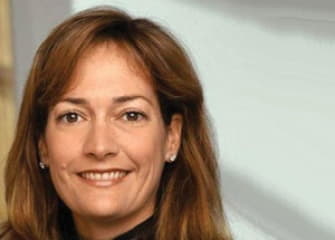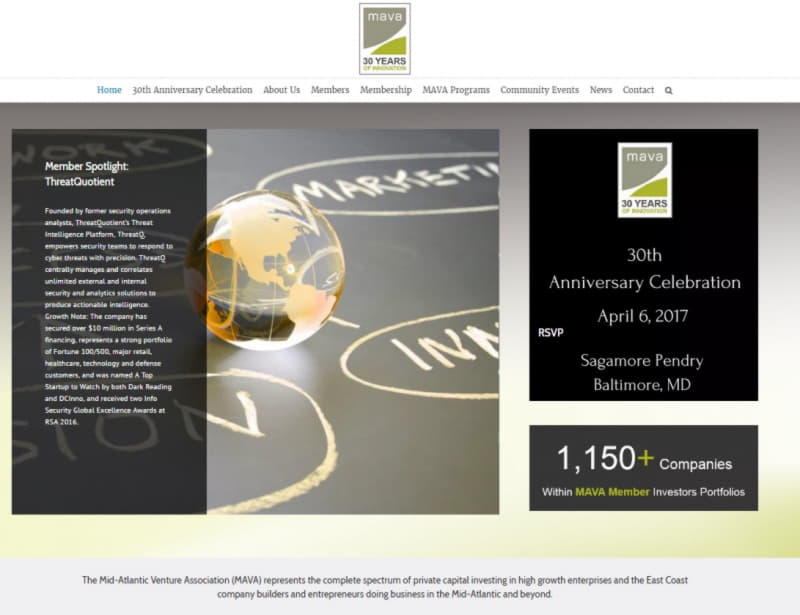
Julia Spicer
Click here for Part I & Part III
Julia Spicer has seen it all in the world of venture finance. For the past 15 years, as executive director at the Mid-Atlantic Venture Association, she has seen remarkable ups and downs, and profound changes in the world of venture finance, as she has charted out new ways to represent the collective interests of over 500 venture capital professionals from 100 funds with more than $100 billion in combined capital under management.
“At our core, obviously is the private investment community, which I think has changed quite significantly over the years,” she told citybizlist’s Edwin Warfield in an interview. “Then we used to have primarily institutional venture, we now have family offices, VC, angels, growth equity, private equity, fund to funds, family offices that are institutionalized in the way that they invest. So we have all kinds of hybrids also affiliated with us.”
One of the hallmarks of MAVA is “to always sort of be on that very front end knowing that things are changing and how do you sort of change and try to deliver some things that are really newly needed in a marketplace for our constituents,” she also said.
Before she assumed the MAVA position, Spicer – a prestigious John Motley Morehead Scholar at the University of North Carolina at Chapel Hill – had accumulated over a decade’s corporate experience and tried her hand at entrepreneur too, running IntellEvents to back woman-owned or woman-run companies in Virginia.
EDWIN WARFIELD: Can you provide us with some history of the founding of MAVA? Chuck Newhall from NEA and Frank Adams of Grotech Ventures had a big role.
JULIA SPICER: I feel like I have been around since the original founding. I really wasn’t. So I can do this from stories and lore, and really sort of the legacy that those gentlemen and others left because fortunately that is in many ways what we all inherited, which was a great foundation for building business, for investment, for growth capital, for real innovation and really seeing some phenomenal businesses and individuals who have come out of their early efforts.
Really, 30 years plus and it was probably longer than that because Chuck and others demonstrated how great ideas generally always start: It is the vision of a few who are both determined and committed and passionate and usually have a lot of energy, too. My guess is that what was at the core of it was this movement afoot from the West Coast and we needed to be part of it, and I think anytime you have someone that’s a visionary and builds things from whole cloth they’ve got to get a lot of credit. I think Chuck and Frank Adams, who were very much at the core of that, both of them co-founders and they kind of locked arms, I believe, and really built MAVA with other people in the community and they would themselves say they did it with a community effort.
Baltimore, I think, could not have been a better place, frankly, for building what I consider to be the East Coast presence of venture. It really emanated here in Baltimore, and I find myself saying that really even today everywhere I go, you know, I will take trips to Europe and I will be talking to limited partners or I will go to the West Coast or to Boston and I really do credit the community. I think the long, deep, entrenched expertise, the financial expertise in this city - it is phenomenal and I think that history is really what, to me, sort of nurtured the appetite, if you will, to bring and to build a MAVA in a community that’s really what I call just an evolution of private capital.
But it took a lot of commitment to do it, it also took a vision to say, yes, we can build it, and it is about going outward, not necessarily just up, but it is also going outward and really bringing a community together and building a community, and I think it is that series of roots, that series of genesis that has probably had, if anything, a bigger effect on what I consider to be the MAVA community, and I don’t mean that to be just MAVA and its members. When I say the MAVA community, I mean the long tentacles of that type of vision and I think that’s really what we all are trying to think about and savor and build upon, which is, how do you build a platform like MAVA 30 years ago and how does it continue to spawn other things that really help build an ecosystem and that’s what is special, I think, about it.
MAVA and the market, and again I think it is important for those who are watching, to understand that our market is very ebb and flow, it is very cyclical and we have a lot of milestones. The dot.com crisis, venture coming up and coming down, I mean all of those are milestones, growing pains, market dynamics that I think are inherent in almost any market but those are ours.
You have heard it a lot, I mean we have all heard it that the issue is people do well when times are great, but the real mettle is when you have a blip in the road, how is it that people perform, how are they then, that’s really when you see who they are and how they are going to lead and what was very impressive to me was that there was a very dedicated board who was committed to chart a new course for MAVA and for the bigger broader community and they gave me such confidence in their ability to lead and their commitment to joining forces in how to build something, and they were engaged.
They were roll-up-your-sleeves kind of guys and gals and they were committed to making it happen. It didn’t matter about title. They were all very much committed to building a bigger and a broader community that I think benefitted very many people, and it was that commitment in the early days that I thought was really appealing to me personally, and you sort of knew right at the get-go that this is the place if you are going to sign on for it, you’ve got to make sure you have support around the board table, and they gave me no reason to think otherwise and as a matter of fact that sort of swayed me to come on board because I am not sure I would have thought myself as an association person. I consider myself a business person and an entrepreneur first, but I do think that that was really appealing.
Connect with Julia on LinkedIn
Sponsored by: MAVA


Edwin Warfield, CEO of citybizlist, conducts the CEO Interviews.
If you're interested in reaching CEOs, please contact edwin.warfield@citybuzz.co
Connect on LinkedIn



































